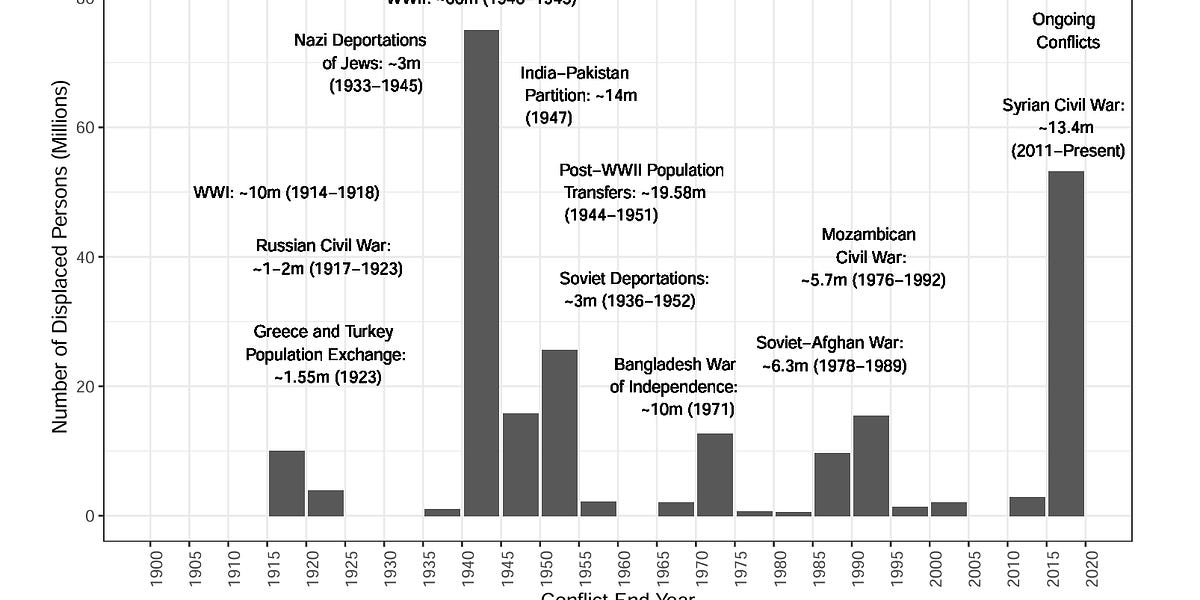In 2023, a surge in violence globally was observed, with conflicts intensifying in Mali, Burkina Faso, Sudan, Myanmar, and the Middle East. The author emphasizes the historical roots of these conflicts, attributing them to factors like postcolonial legacies and geopolitical rivalries. Despite being interconnected with global trends, these conflicts often receive limited coverage due to their complex nature. The escalation of violence in the Middle East raised concerns about potential regional warfare involving Iran. Additionally, the analysis explores the historical context of the Israel-Palestine conflict and its implications for modern geopolitics. The content also reflects on Europe's successful integration post-World War II as a contrast to ongoing conflicts worldwide.
Personalizar resumen
Reescribir con IA
Generar citas
Traducir fuente
A otro idioma
Generar mapa mental
del contenido fuente
Ver fuente
adamtooze.substack.com
Chartbook 258 War, peace and the return of history in 2023
Ideas clave extraídas de
by Adam Tooze a las adamtooze.substack.com 02-26-2024
https://adamtooze.substack.com/p/chartbook-258-war-peace-and-the-return
Consultas más profundas
